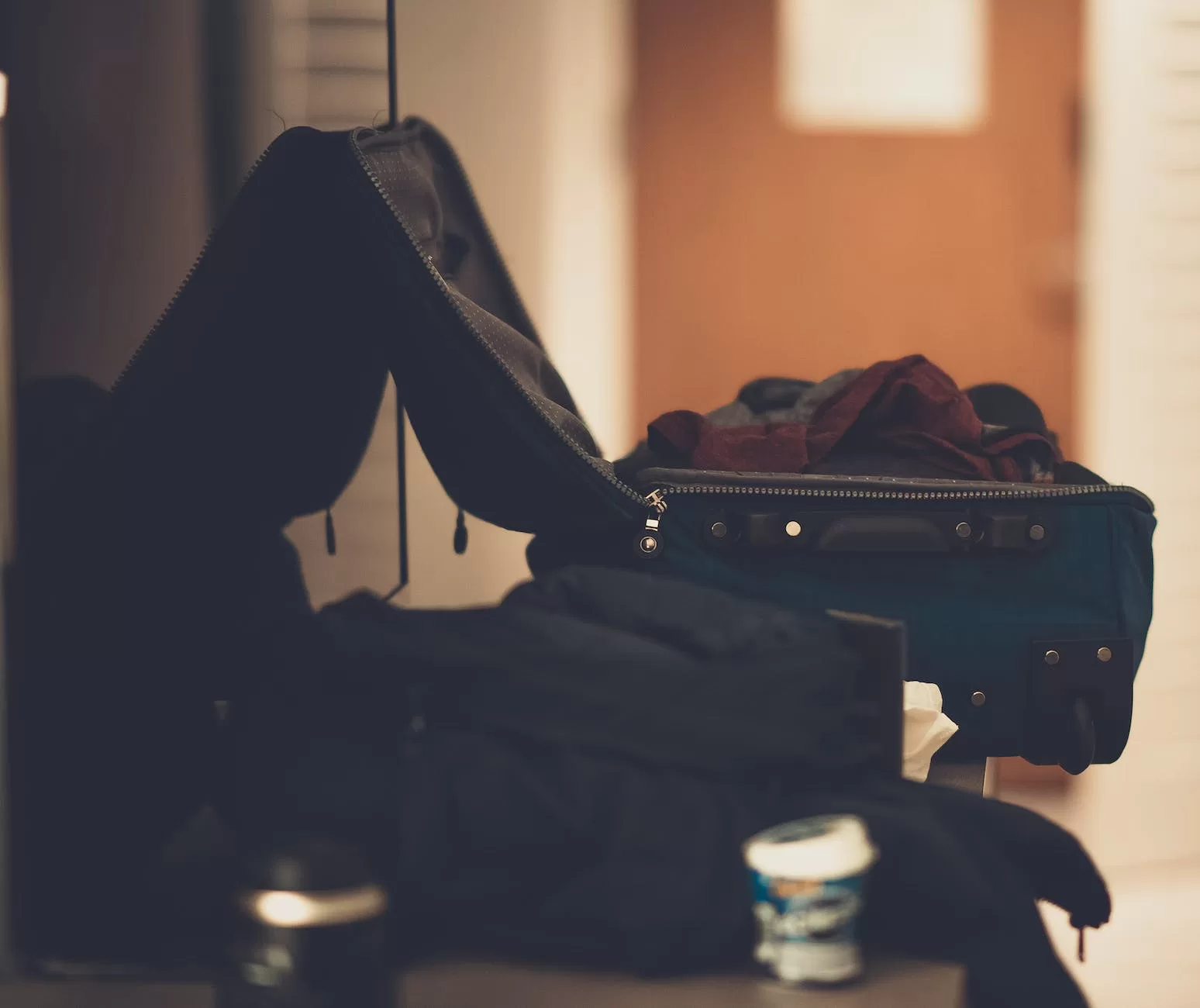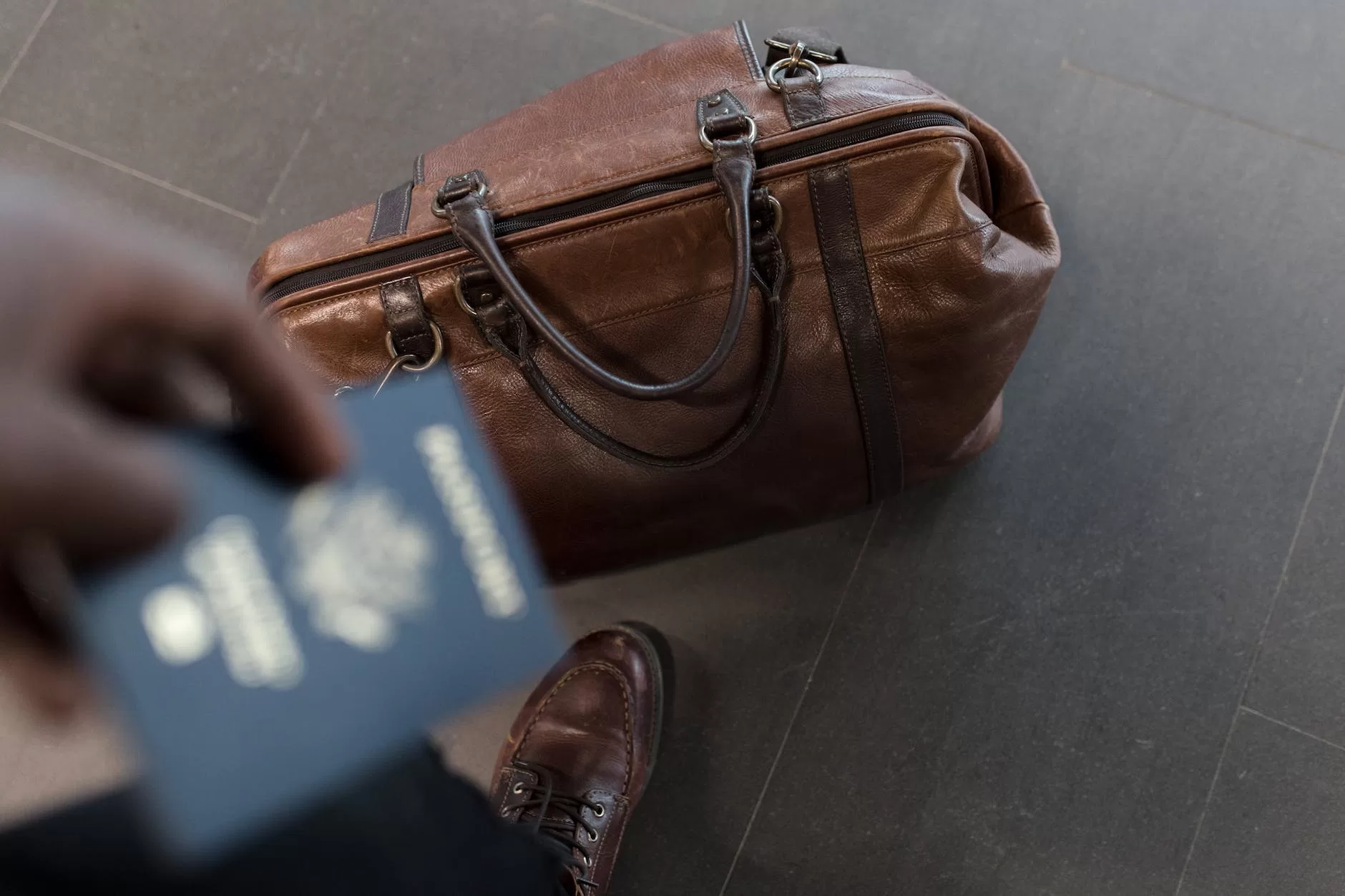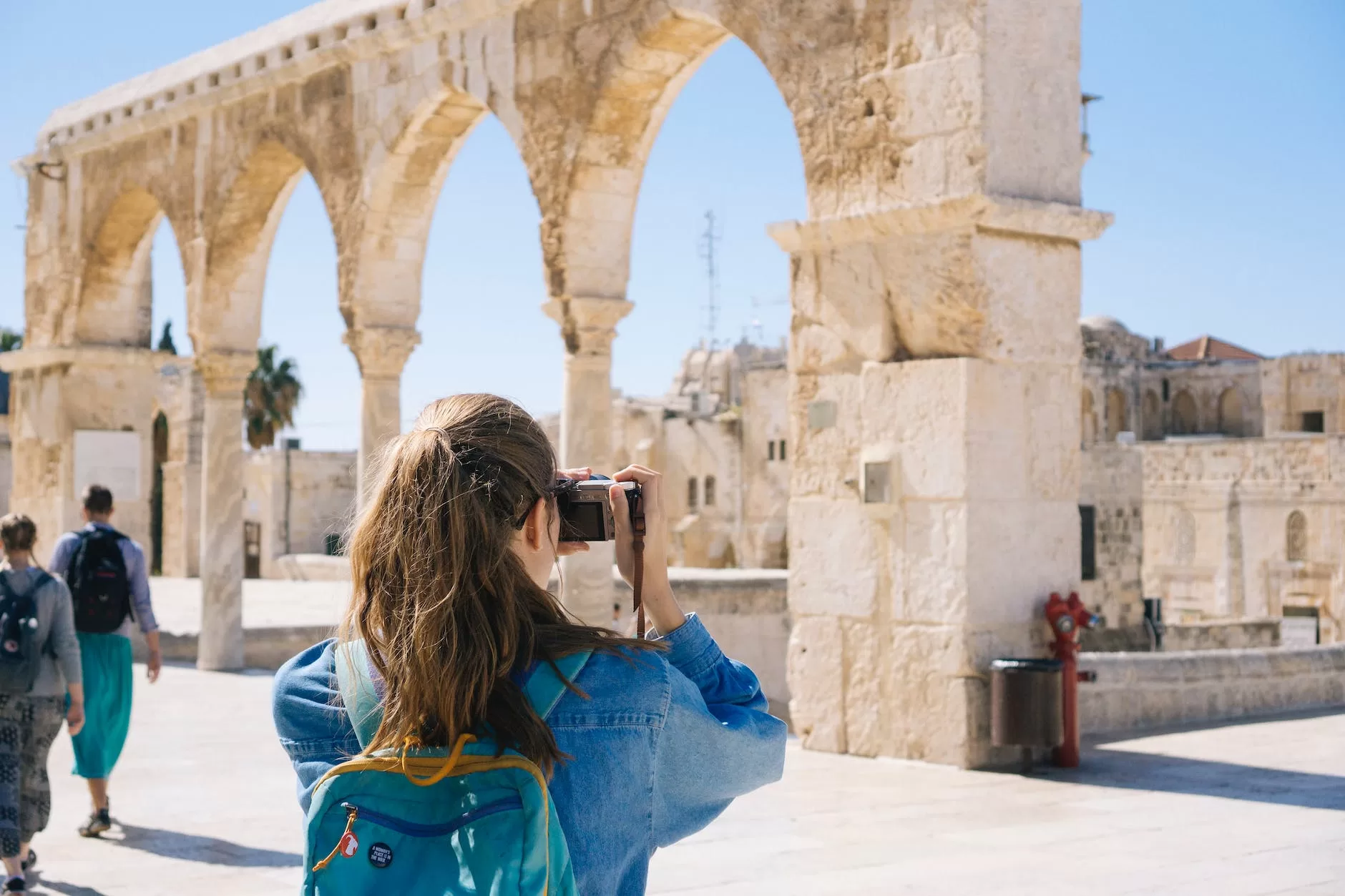Embarking on the journey of planning a trip is akin to orchestrating a symphony of anticipation and logistics. It begins with the spark of wanderlust, a desire to explore new horizons, and the eagerness to immerse oneself in unfamiliar cultures. The planning process unfolds like a carefully crafted roadmap, each step meticulously designed to ensure a seamless and enriching travel experience. From choosing the perfect destination and setting a realistic budget to navigating the labyrinth of flights, accommodations, and local nuances, planning a trip requires a delicate balance between spontaneity and meticulous organization. As details align and reservations solidify, the traveler prepares for a physical journey and sculpts the contours of the adventure that awaits—a tapestry woven with anticipation, curiosity, and the promise of unforgettable moments.
Veteran Travel Experience
This was true for my first trips to South America.
As the plane wheels touched down on the tarmac, I felt excitement coursing through my veins—a pulsating rhythm that matched the beating heart of South America, the next chapter in my odyssey. With a backpack slung over my shoulder and an eagerness to explore, I embarked on a journey that promised not only to traverse geographical landscapes but also to unravel the tapestry of cultures woven into the fabric of this extraordinary continent.
From the sun-kissed beaches of Brazil to the mystical ruins of Machu Picchu, my itinerary was a kaleidoscope of experiences waiting to be uncovered. The scent of tropical rainforests and the echo of distant rhythms fueled my wanderlust as I immersed myself in the vibrant hues of South American life. It was a tale written with each step—a narrative that unfolded against the backdrop of ancient civilizations, modern metropolises, and the untamed beauty of the Amazon.
Planning a trip can be exciting and overwhelming, but you can ensure a smooth and enjoyable travel experience with careful organization and attention to detail. Whether you’re a seasoned traveler or a first-timer, follow these 16 steps to plan the perfect trip:
How to Plan the Perfect Trip?

Define Your Purpose and Destination
Start by clearly outlining why you want to travel and decide on the specific place you want to visit. Whether for a relaxing beach vacation, cultural exploration, or a business trip, having a clear goal will guide your planning. Deciding on a particular destination is essential rather than just saying you’re going somewhere. Being specific, like saying, “I am going to Paris in the summer,” makes your trip more accurate and more accessible to commit to. This specificity not only helps mentally but also streamlines the planning process. The more detailed and focused your destination, the easier to plan your journey effectively. So, make your travel goal concrete and specific, turning your vague plans into a well-defined and exciting adventure.
Decide Where You Want To Go
Defining where you want to go sets a goal to work toward. A lot of people talk vaguely about travel. They never say where they are going, just that they are going. Picking a destination is immensely important, as it gives you a definite goal.
It’s a lot easier to mentally get behind “I am going to Paris in the summer” than “I’m going to Europe” or “I’m going somewhere.” Not only will your trip become more concrete for you and easier to commit to, but it will make planning more accessible as well…because you know what to work towards. Get specific with your plans. Get detailed. The more focused and concrete your goal, the easier it will be to reach it.
Determine How Long You’ll Travel
The cost of your trip depends on its duration, a crucial factor you must decide before planning. Estimating expenses without knowing how long you’ll be away is challenging. Consider if you’re traveling for a week, a month, or a year, as this will significantly influence your budget. For instance, after saying, “I’m going to Paris this summer,” specify the duration, like “for X days.” This clarity helps you narrow down your expenses and set achievable goals. Once you’ve established the length of your trip, move on to the next step.
Research Your Costs
Now that you know your destination and trip duration, research the costs associated with your preferred travel style. Decide if you want to backpack or opt for luxury accommodations. Explore prices for hostels, hotels, restaurants, and attractions to estimate your overall expenses. Utilize resources like guidebooks, online travel guides, and specific searches for activities like scuba diving or winery tours. Avoid information overload by sticking to these sources and resist the temptation to overplan. In our example, if you plan a 10-day trip to Paris with a daily budget of $75 (excluding flights), you’ll need to save around USD 750 (rounding up to $800-900 USD for a buffer) for a comfortable and well-prepared journey.
Set a Budget

Estimate your trip expenses by considering accommodation, transportation, meals, activities, and unforeseen costs. This thorough financial analysis empowers informed decision-making throughout planning, ensuring a well-aligned and stress-free travel experience. Research accommodation and transportation costs, factor in daily meal expenses, explore activity costs and allocate a budget for unexpected circumstances. This comprehensive approach helps you plan within your financial constraints, enhancing the overall enjoyment of your journey.
Start Saving Money
To initiate your savings plan, it’s essential to understand your current financial situation by examining your income and expenses. Start by meticulously documenting all your current expenditures, allowing you to pinpoint where your money is going and identify areas where you can reduce spending.
Often, money slips away gradually through seemingly insignificant daily purchases like coffee or snacks. Although these expenses may appear trivial, they accumulate over time. To make positive changes in your spending habits, it’s crucial to comprehend them thoroughly. Creating a comprehensive list of your expenses illuminates your financial patterns and offers valuable insights into potential areas for saving.
Consider this practical example: if your upcoming trip requires $2,000 in eight months, your daily savings target is a manageable $8.33. Breaking it down makes it clear that finding ways to save a mere $8 per day, an amount commonly spent on routine indulgences like a daily cup of coffee, is entirely achievable. This exercise aligns your financial goals and underscores the realistic potential to redirect daily expenses toward a more meaningful purpose, such as funding your eagerly anticipated journey.
Get a Travel Credit Card
While saving money, consider obtaining a travel credit card to capitalize on sign-up bonuses and accumulate miles and points for complimentary flights and hotel stays. This strategy has allowed me to enjoy numerous free flights, hotel accommodations, and travel perks annually without additional spending. Nowadays, most cards offer welcome bonuses, often up to 100,000 points, when you meet their minimum spending requirements—enough for a complimentary flight almost anywhere in the world!
Tailor your choice of credit cards to your travel preferences: opt for those offering free flights or hotel stays based on your priorities. Register for a travel credit card and earn points promptly, ensuring you pay off your monthly balance to enjoy the full benefits of free travel credit. It’s not necessary to sign up for numerous cards; focus on one or two, initiating the process as soon as you decide to travel. Delaying this step results in lost miles, translating to fewer opportunities for free travel.
Travel hacking,” or the strategic collection of points and miles, is a practice embraced by experts to minimize costs and extend travel durations. This approach has personally kept my travel expenses low, allowing me to explore the world for numerous years. While the best cards may be exclusive to the US, there are still ample options for individuals in Canada, Europe, Australia, and New Zealand.
Maintain Your Focus and Inspiration
As you approach your travel goal, nurturing your passion for exploration is crucial. Travel planning can be exhausting and overwhelming, particularly if you lack support from friends and family or your trip is still months away. There may be moments when the journey seems daunting and distant.
Fortunately, our vibrant community on this website offers numerous ways to stay focused and uplifted. Explore inspiring travel stories that can fuel your wanderlust, such as articles on why it’s never the perfect time to travel, recommended travel books, strategies to overcome financial barriers, and effective ways to stay motivated for your journey.
Consider joining our online travel community, Atypical Vagabond, for additional support and tips. Beyond the online platform, we organize regular in-person and virtual events worldwide. These events inspire and offer opportunities to connect with fellow travelers in your area, fostering a sense of community and providing valuable travel advice.
Explore Last-Minute Bargains

Now that you’re motivated, well-prepared, and diligently saving for your trip, take a moment before finalizing your plans to scour any last-minute deals you might have overlooked. While Paris may be your dream destination, there could be enticing offers for Berlin, a heavily discounted seven-day cruise, an all-inclusive package to Hawaii for the cost of your Paris flight, or even a 50% off deal on sailing trips around Greece.
In today’s travel landscape, opportunities for savings are abundant, particularly if you’re open to adjusting your travel dates or exploring alternative destinations. Stay flexible, and you may uncover enticing deals that align perfectly with your aspirations. Consider checking reputable deal websites to maximize your chances of finding the perfect, budget-friendly option.
Choose Travel Dates and Book Flights
Once you’ve utilized your travel credit card and claimed your sign-up bonus, leverage your accumulated miles to book your flight. In today’s travel landscape, securing flights with miles can be challenging due to limited availability, so booking well in advance is crucial to secure your preferred itinerary.
Fortunately, numerous strategies exist to ensure you aren’t the one who paid the highest fare for your ticket. My top recommendations for discovering budget-friendly airfare are:
- Skyscanner: Ideal for simultaneously searching multiple destinations, Skyscanner is a versatile platform.
- Google Flights: Like Skyscanner, Google Flights excels at conducting open searches for various destinations.
To snag the best deals, book your flight approximately two to three months ahead of your planned travel dates. For detailed insights on securing affordable flights, explore the following two articles:
Secure Accommodation
If you’re traveling for under two weeks and have a set schedule, feel free to book accommodation if it will give you peace of mind (or if you’re visiting during the high season).
For trips longer than two weeks (or if you will be traveling long-term) book your first few days. That will ensure you have a place to go on arrival. Once there, you can get insider advice from your hotel/hostel staff and other travelers. You can then use that info to plan your next steps.
While you can book more than your first few nights, you might want to change your plans once you land. I prefer flexibility, so I always book my first few nights and go from there.
Here are my go-to sites when it comes to finding the best deals on accommodation:
- Hostelworld – Hostelworld has the largest selection of hostels and is my go-to site for finding affordable hostels.
- Agoda – Agoda has the best results if you’re heading to Asia (though they sometimes have good US deals, too).
- Booking.com – Booking.com is the best platform for finding budget hotels and guesthouses.
For those prioritizing budget-conscious travel or seeking authentic connections with locals, exploring platforms such as Couchsurfing or BeWelcome is worthwhile. These communities facilitate free stays with locals, fostering cultural exchanges between travelers and hosts.
Additionally, long-term travelers may explore alternatives like housesitting or WWOOFing, offering complimentary accommodation in exchange for tasks such as pet sitting or farm work. These opportunities provide a cost-effective way to stay and immerse travelers in unique experiences.
Research Your Destination

Create a Rough Itinerary
To ensure a well-budgeted trip, meticulously outline the major activities you intend to enjoy and their associated costs. Make any necessary adjustments to your savings to guarantee you have adequate funds. This process will assist you in financial planning and also help identify if reservations are required for selected tours or activities.
Conduct online searches for potential discounts, as some countries may offer better prices in person, while others provide early/online booking advantages. Research these dynamics in advance to optimize your cost savings.
For shorter trips, consider booking activities in advance to secure tickets. On longer journeys, adopt a flexible approach and book activities as you go.
Before departing, prioritize the activities that matter most to you, providing a guideline in case of time or budget constraints. Additionally, be aware of holidays or potential obstacles affecting your chosen activities, ensuring a smoother and more enjoyable travel experience.
Arrange Transportation
Once you’ve nailed down the primary aspects of your trip, it’s crucial to turn your attention to the finer details, especially transportation within your destination. If your travel plans involve exploring different cities, regions, or even neighboring countries, consider organizing any additional modes of transportation you might need.
Therefore, this could include booking local flights to connect to specific regions, securing train tickets for efficient inter-city travel, or reserving a rental car for the flexibility to explore at your own pace. Addressing these logistical elements in advance ensures a smoother transition between locations and enhances your overall travel experience by minimizing last-minute uncertainties.
Research and book transportation options that align with your itinerary, providing a reliable and convenient means to navigate your chosen destination.
Check Visa Requirements
Checking visa requirements is a pivotal step in trip planning, ensuring a seamless and stress-free journey. Visa regulations vary widely across countries, and understanding the entry requirements of your destination is essential to avoid any travel disruptions. By researching and confirming visa necessities well in advance, travelers can preemptively address any documentation needs, processing times, or fees associated with obtaining the required visas.
Therefore, this diligence not only helps secure a smooth entry into the chosen destination but also aids in avoiding last-minute hurdles or potential complications at border control. Stay informed, plan accordingly, and obtain the necessary visas to ensure a hassle-free and enjoyable travel experience.
Get Travel Insurance
While many believe they don’t need travel insurance because they are healthy and unlikely to get sick, its value extends beyond medical coverage. Travel insurance safeguards you in various situations, including camera breakage, flight cancellations, emergencies requiring your return home, or theft incidents.
Although it may seem like an additional expense, prioritizing safety over savings is crucial. Having witnessed firsthand unexpected mishaps, I never embark on a journey without travel insurance. From popping my eardrum while scuba diving in Thailand to breaking my camera in Italy, these incidents were unforeseen. A friend faced a leg injury while hiking, and another had to return home due to a family tragedy urgently.
Though such occurrences are infrequent, they can lead to significant out-of-pocket expenses. If you’re not ready to bear these costs independently, investing in travel insurance is prudent.
To assist you in selecting the right plan for your trip, I’ve crafted an ultimate guide on choosing a reliable insurance company. This guide covers illness coverage, flight cancellations, injuries, theft, and trip delays. Additionally, I’ve outlined recommended travel insurance companies, offering a breakdown to help you identify the best plans suited to your needs and budget.
Pack Smart

Time to prepare for your journey! While the temptation to pack everything “just in case” may be strong, simplicity is key in travel. You don’t need an excess of sweaters or an abundance of shoes – less is truly more, and it becomes remarkably liberating once you adjust to it!
I travel with a 45L REI bag accompanied by a smaller day bag. Unless you’re venturing into diverse climates with bulky winter gear requirements, there’s no need for an oversized 70L bag crammed to capacity. To assist you in achieving the perfect balance and prevent overpacking, here’s my suggested packing list.
Remember, your destination should influence your packing choices, but the overarching principle is not to pack your entire wardrobe. Many items can be purchased on the road, and laundry services are available overseas. Ultimately, you must carry everything you bring, so the mantra is to bring less!
There are a few extra items you might want to pack beyond your everyday clothes, though. Some things I like to bring with me are:
- First aid kit
- LifeStraw bottle with built-in filter
- Packing cubes (to stay organized)
- Travel lock (for hostel lockers)
- Travel adapter
- Quick-dry towel
Also, ensure you bring any prescriptions and have enough for your trip. If that’s not feasible, bring a doctor’s note and prescription to fill it abroad.
Alert Your Bank and Automate Bill Payments
Inform your bank about travel plans to avoid issues with your credit or debit cards abroad.
Streamline your financial responsibilities before your trip by notifying your bank about your upcoming travels. Eliminate paper clutter by opting for a paperless approach and setting up online payments for recurring bills. This ensures you won’t miss any payments while abroad. If you anticipate receiving paper mail, consider using Earth Class Mail, which collects and scans your mail. However, this step may be unnecessary for shorter trips, such as a two-week venture.
Alternatively, redirect your mail to a trusted friend or family member if you prefer not to use a mail service. In addition to managing mail, evaluate your phone plan to ensure it aligns with your travel needs. For shorter trips (under three months), T-Mobile is suitable for travel-friendly plans. Consider canceling your plan and purchasing local SIM cards for extended trips, a more cost-effective solution.
Stay Connected
In the age of global connectivity, maintaining communication with loved ones back home is essential for peace of mind and staying in touch. A robust communication plan ensures family and friends know your whereabouts, itinerary, and emergency contacts. Share detailed information about your accommodations, scheduled activities, and essential contact numbers.
Consider utilizing various communication channels, such as messaging apps, email, or even social media, to provide regular updates on your journey. This proactive approach fosters a sense of reassurance among those at home and creates a seamless way to share the highlights of your travel experiences.
Learn Basic Local Phrases
Immerse yourself in the local culture by taking the initiative to learn basic phrases in the native language. Beyond enhancing your travel experience, knowing standard greetings, expressions, and essential phrases can significantly contribute to effective communication with locals.
Therefore, this cultural exchange often leads to more meaningful interactions and a deeper appreciation of the destination. Invest time in familiarizing yourself with common expressions related to greetings, directions, and basic courtesies, reflecting a genuine interest in connecting with the local community. Whether a warm greeting or a simple thank you, embracing the local language adds a personal touch to your journey and enriches your overall travel experience.
Double-Check Everything
As you embark on your journey, it’s crucial to undertake a comprehensive review of all your travel essentials to mitigate potential challenges and ensure a seamless travel experience. Begin by thoroughly examining your travel documents, such as passports, visas, and any required permits.
Confirm the accuracy of all details, including names, dates, and entry requirements. Next, scrutinize your accommodation, transportation, and activities reservations, ensuring they align with your itinerary. This meticulous approach helps prevent last-minute stress and promptly resolves discrepancies or oversights.
Additionally, verify that you have all necessary personal items, such as medications, travel adapters, and essential contact information. By investing the time to double-check everything, you set the foundation for a worry-free and enjoyable journey from the very start.
Atypical Last Thoughts

To ensure a well-budgeted trip, meticulously outline the major activities you intend to enjoy and their associated costs. Make any necessary adjustments to your savings to guarantee you have adequate funds. This process will assist you in financial planning and also help identify if reservations are required for selected tours or activities.
Conduct online searches for potential discounts, as some countries may offer better prices in person, while others provide early/online booking advantages. Research these dynamics in advance to optimize your cost savings.
For shorter trips, consider booking activities in advance to secure tickets. On longer journeys, adopt a flexible approach and book activities as you go.
Before departing, prioritize the activities that matter most to you, providing a guideline in case of time or budget constraints. Additionally, be aware of holidays or potential obstacles affecting your chosen activities, ensuring a smoother and more enjoyable travel experience.
By following these 16 steps, you’ll be well-prepared to embark on a memorable and hassle-free journey. Bon voyage!
Subscribe
Are you an avid traveler seeking inspiration for your next adventure? Look no further than the Atypical Vagabonds newsletter. By subscribing to our newsletter, you gain access to a treasure trove of travel tips, destination guides, and captivating stories from around the globe. Our knowledge in exploring off-the-beaten-path destinations. We offer a refreshing perspective on travel, encouraging you to embrace the unconventional and discover unique experiences. Join the community today and let our wanderlust-inducing content inspire you. Therefore, you can embark on extraordinary journeys. Subscribe to receive their latest updates directly in your inbox and never miss a travel adventure again.
Donations
Love what you’re seeing on Atypical Vagabond? Help us keep the adventures coming! Consider donating through PayPal’s secure payment system. Every contribution goes a long way in fueling our mission to bring you more thrilling content and unforgettable experiences. Join us in shaping the future of travel—donate today!




Leave a Reply